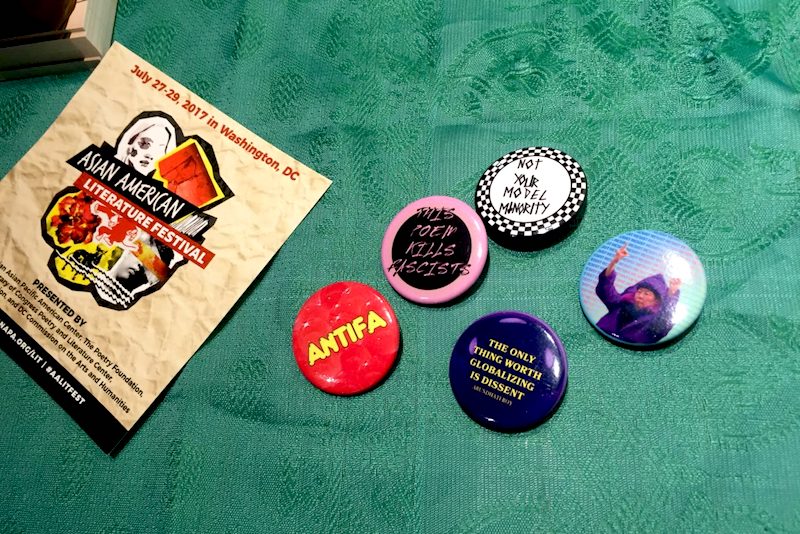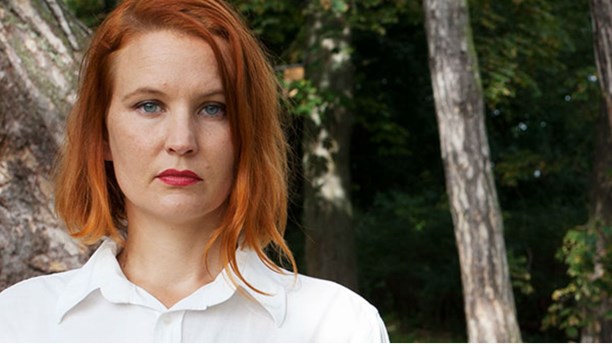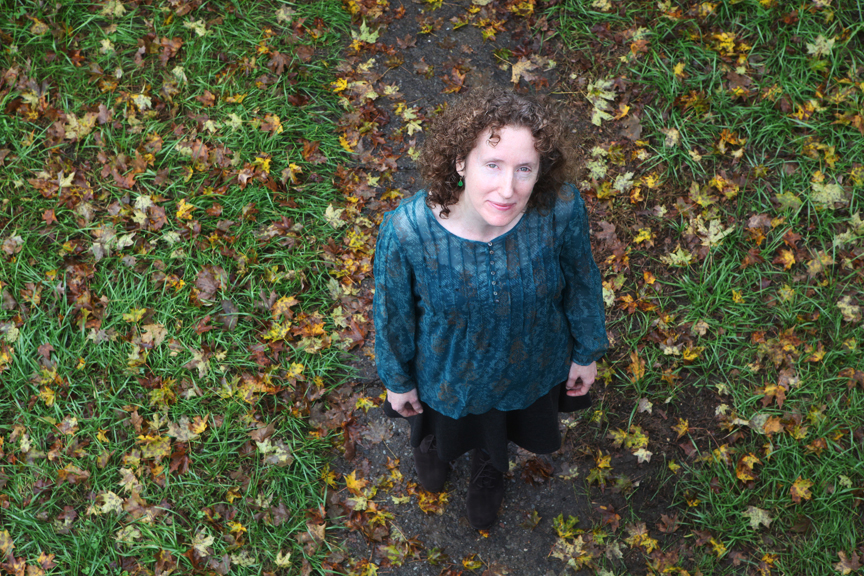
“No one is immune to the fantasy of authenticity,” Paisley Rezkal said. It was the last panel of the second day at the first-ever Asian American Literature Festival. I’d already gotten my tarot cards read, spoken on a panel, participated in a speed-mentoring session, eaten too many carbs, and slept in a dorm room that resembled, as a friend said of the picture I texted her, a World War II hospital. I probably should have wanted to take a nap, but I was leaning forward with my chin in my hand, quite literally sitting on the edge of my seat, because I felt like she was talking to me. Over the course of the whole weekend, I felt like people were talking to me more directly than they had in a very long time.
The festival, which focuses solely on Asian American literature, is the first of its kind. It’s put on by the Smithsonian Asian Pacific American Center in collaboration with a number of organizations, including Poetry Magazine, Kundiman, and the Asian American Writers’ Workshop. The initial day was held at the Smithsonian National Portrait Gallery, the second day at The Phillips Collection, the last at the Library of Congress. The fact that it’s called a festival, not a conference, is demonstrative of its communal, celebratory spirit.
Though the general spirit felt lighthearted, the words and intention were weighty. This kind of nurturing environment is rare, which I mentioned to Lawrence-Minh Bùi Davis, the curator of the Smithsonian Asian Pacific American Center and editor-in-chief of Asian American Literary Review. “We are not living writ large in a welcoming space,” he said. “Many of us move through violent spaces all the time and are subject to all kinds of awful treatment and conditions, so it’s our responsibility to work against those and to create caring spaces.” It sounds both natural and difficult, but either way, the intentionality behind the festival shone through.
My schedule for the first day included a talk on Vietnamese diasporic literature featuring Vu Tran, Linh Dinh, and Cathy Linh Che, a reading by queer Asian writers Wo Chan, Peggy Lee, and Rajiv Mohabir, a fiction reading by Don Lee and Akhil Sharma, and the Poetry magazine summer issue launch. There were stations set up from various organizations, from Kaya Press to Bamboo Ridge to AAWW, in the ‘literary lounge,’ where attendees made self-care cards, memes and child-to-parent letters.
The following day offered one-on-one mentoring sessions with Nicole Chung and Jennifer Chang, and though I’d neglected to sign up, I heard that Nicole had an opening and was lucky enough to sit down with her in a bright side room at the museum. I had just read Nicole’s latest essay online and was thrilled to meet her and talk about representation, fiction vs. nonfiction, and literary community in person. “I always love the chance to talk with writers at all levels, young writers especially,” she told me about the mentoring sessions that day. “A lot of writers need just a little bit of encouragement—honestly, I know I still need that—so it’s a privilege to be able to offer that feedback and that kind of encouragement.”
After that, I saw Kazim Ali and Franny Choi give a literary address with a large audience squeezed into the bookshop of the Phillips Collection, inverted umbrellas hanging overhead; Writer-Scholar speed dating went on nearby in the Carriage House. The AAWW Margins Fellows for this year (myself included) then read our work. One of the fellows, Yanyi, said it felt amazing to read in a space where his poems related one of many diverse Asian-American experiences. “I didn’t have a second thought about whether the audience would ‘get’ what I was writing about, nor did I have to worry if I was speaking for anyone but myself,” he explained.
Following that, Ryan Lee Wong moderated the Kundiamn/AALR Mentoring Reading, which featured Alexander Chee, Paisley Rekdal, Grace Jahng Lee, and Justin Monson; he began by asking us all to take a collective deep breath. I was particularly struck by something Alexander Chee said about what he would like to pass along to his students:
The idea that the white imagination is the only thing that’s limitless is this idea that we’re always fighting, if not in ourselves, in other people. When I was presenting my manuscript to publishers, I felt like I wasn’t legible to them because they had never met anyone like me. It was like they couldn’t believe I existed, much less that this book had been written that was in front of them. That cured me of any idea of that imagination as limitless—it was so incredibly limited that I was shocked. But what I did understand completely from that experience was that they felt they had the power to define what was real and what was not. That was what I would be trying to take back from them for the rest of my career, so when I think about what I’m trying to pass on, it’s a sense of confidence to face that.
(…)




